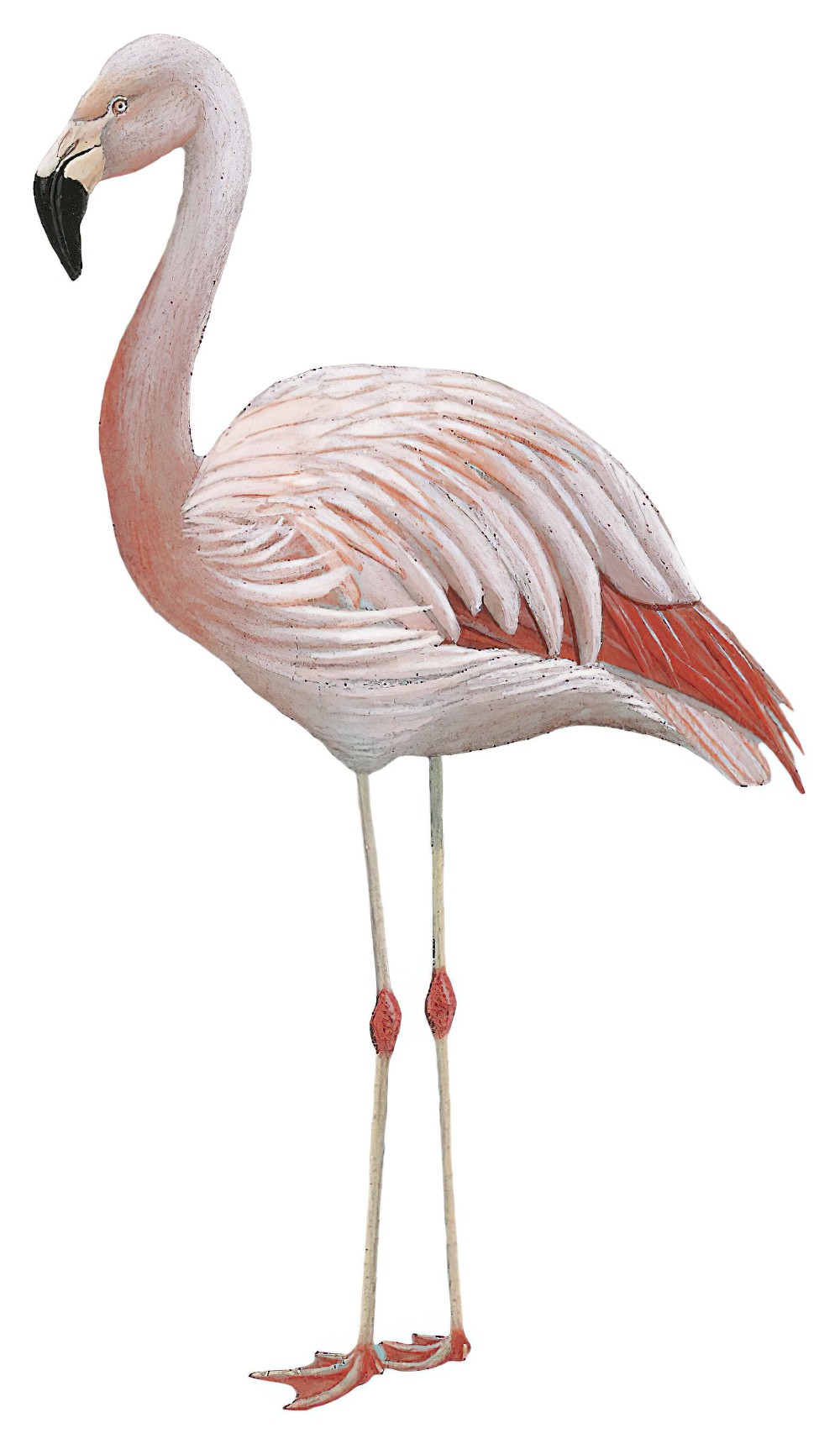Chilean Flamingo / Phoenicopterus chilensis

Chilean Flamingo
SCI Name:
Protonym: Phoenicopterus Chilensis SaggioStoriaNat.Chile p.242,344
Taxonomy: Phoenicopteriformes / Phoenicopteridae / Phoenicopterus
Taxonomy Code: chifla1
Type Locality: Chile.
Author: Molina
Publish Year: 1782
IUCN Status: Near Threatened
DEFINITIONS
PHOENICOPTERUS
(Phoenicopteridae; Ϯ American Flamingo P. ruber) L. phoenicopterus flamingo < Gr. φοινικοπτερος phoinikopteros flamingo < φοινιξ phoinix, φοινικος phoinikos crimson; -πτερος -pteros -winged < πτερον pteron wing; despite its erratic appearance and breeding habits, the Greater Flamingo P. roseus was well known to the ancients, and served up as a delicacy at the tables of the wealthy; "72. PHOENICOPTERUS. Rostrum denudatum, infracto-incurvatum. Pedes palmati, tetradactyli." (Linnaeus 1758); "Phoenicopterus Linnaeus, 1758, Syst. Nat., ed. 10, p. 139. Type, by monotypy, Phoenicopterus ruber Linnaeus." (Kahl in Peters 1979, I, ed. 2, 269). Linnaeus's Phoenicopterus comprised a single species.
Var. Phönicopterus, Phenicopterus, Phaenicopterus.
Synon. Gervaisia, Harrisonavis, Phoenicorodias.
phoenicopterus
Gr. φοινικοπτερος phoinikopteros red-feathered < φοινιξ phoinix, φοινικος phoinikos crimson; -πτερος -pteros -winged < πτερον pteron wing.
● ex “Purple-shouldered Pigeon” of Latham 1787 (Treron).
chilensis
Chile (formerly spelled Chili). Etymology disputed; probably from Mapuche chilli ends of the earth.
● Erroneous TL. Chile (= Manila, Philippines) (syn. Lalage nigra).
● Erroneous implied TL. Chile (= Bolivia) (Tangara).
● “Hellmayr is the most recent author who proposes to reject Molina’s name on the grounds that it is a composite between the present form and Jacana j. jacana. It must be remembered that a large percentage of the names of the 18th century authors are composites, and if any degree of stability in nomenclature is to be attained the name must be fixed on one of the species to which the account applies, provided of course that the name is identifiable at all” (Peters 1934) (Vanellus).
UPPERCASE: current genus
Uppercase first letter: generic synonym
● and ● See: generic homonyms
lowercase: species and subspecies
●: early names, variants, mispellings
‡: extinct
†: type species
Gr.: ancient Greek
L.: Latin
<: derived from
syn: synonym of
/: separates historical and modern geographic names
ex: based on
TL: type locality
OD: original diagnosis (genus) or original description (species)












